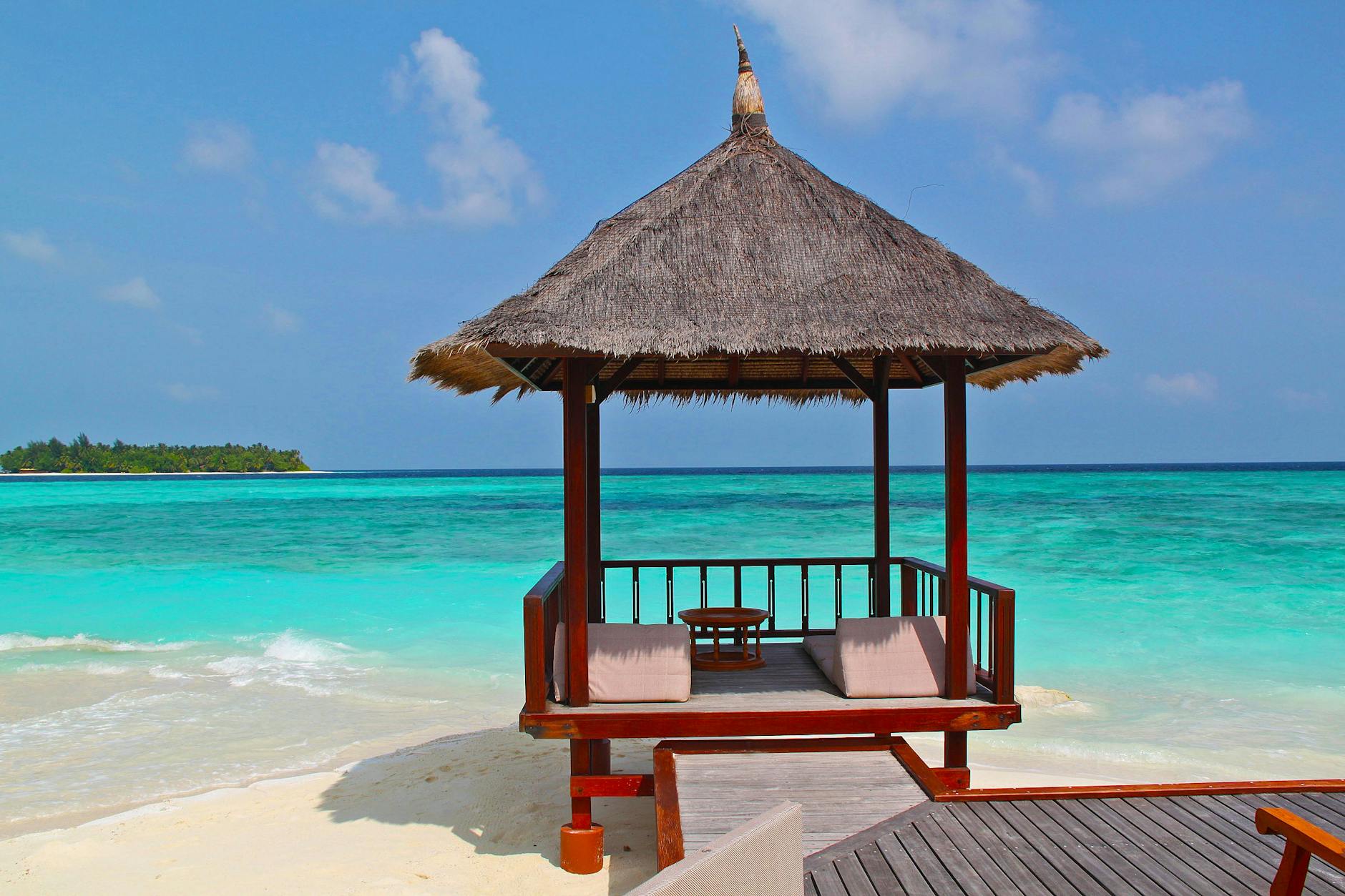Why Exploring Australia's Wilderness Can Inspire Conservation

Immersing in Australia's Wilderness
As someone driven by conservation, stepping into the wilderness of Australia is an awe-inspiring experience that connects you with some of the most diverse ecosystems. Having spent numerous weekends exploring these landscapes not far from serene South Beach, I can say that the natural beauty and wildlife are nothing short of captivating. From the lush rainforests to the arid outback, each area presents an opportunity to learn about unique ecosystems and their roles in global biodiversity.
Diverse Ecosystems to Explore
Australia offers an incredibly diverse range of habitats. For example:
- Tropical Rainforests: Home to a vast array of flora and fauna, these ecosystems are vital for species like the cassowary and tree kangaroo. They not only support complex food webs but also play a crucial role in carbon storage.
- Coral Reefs: The Great Barrier Reef is a marvel of marine life, contributing to regional biodiversity and serving as an essential resource for research and education.
- Desert Landscapes: With unique adaptations, species like the echidna and bilby thrive here, offering a study in survival amidst harsh conditions.
Unique Wildlife Encounters
The chance to witness koalas in their natural habitat or spotting a platypus along a riverbank is truly special. These encounters remind us of the importance of conservation. Reflecting on my own adventures around the Fremantle Markets, I've gained firsthand knowledge of these creatures, deepening my understanding and appreciation for Australia's wildlife.
Cultural Significance of Landscapes
Beyond the pristine beauty, these landscapes hold profound cultural significance. They have been shaped by the traditions and custodianship of Indigenous Australians over thousands of years. Understanding this cultural context enriches any travel experience, fostering respect for the land and its original inhabitants.
For those interested in international eco-adventures, consider exploring beyond Australia with travel options like machu picchu tours, arctic cruises, or a kenya safari. Each offers a window into different ecosystems and cultures, echoing the splendor and challenges of conserving our natural world.
The Role of Conservation
Threats Facing These Regions
As a devoted conservationist hailing from Fremantle, right next to the vibrant Fremantle Markets, I've observed firsthand the multitude of challenges our delicate ecosystems face. One of the most pressing threats is habitat destruction, which stems from urban expansion and land clearing for agriculture. This leads to the displacement of native species and a decline in biodiversity. Moreover, climate change exacerbates these issues by altering rainfall patterns and increasing the frequency of extreme weather events, further endangering our natural habitats.
Pollution, especially plastic waste, poses another significant threat. It infiltrates our waterways, affecting aquatic life and eventually disrupting the entire food chain. The increase in tourism, an industry I support for its educational potential, can, unfortunately, lead to the degradation of pristine environments. Popular destinations like the Galapagos Islands are experiencing the effects of overtourism, which threatens their unique flora and fauna galapagos cruise.
Finally, invasive species present a major challenge to biodiversity. They outcompete native species for resources and can introduce diseases to which local wildlife has no immunity. These threats underscore the urgency for effective conservation strategies and responsible travel choices. With experiences like gorilla trekking in Rwanda, I've witnessed how conservation and tourism can coexist, each benefiting the other in a delicate balance gorilla trekking rwanda. Engaging with these diverse ecosystems responsibly not only protects them but enriches our understanding of the natural world.
Inspiring Future Generations
Integrating Travel into Teaching
In my quest to ignite a passion for conservation among my students, I find that weaving personal travel experiences into lessons is transformative. Imagine standing in front of a class, painting a vivid picture of a vibrant rainforest during Central America tours, sharing the sights and sounds I’ve encountered. Such stories anchor the geographical theories they learn, making them more tangible and inspiring their curiosity about the world's ecosystems.
Cultivating Environmental Stewardship
It's essential to foster a sense of responsibility towards the environment in our future generations. Encouraging students to explore the rich biodiversity right at places like the serene South Beach ignites a personal connection to nature. Sharing experiences, such as gorilla trekking Uganda, demonstrates how conservation efforts play a crucial role in protecting these magnificent creatures. These narratives encourage students to envision their role in preserving these natural wonders for future generations.
Fostering Cultural Appreciation
Cultural experiences, like those at the Fremantle Arts Centre, offer a unique opportunity to teach the importance of respecting diverse ecosystems and traditions. By using my travels as a lens to view different cultures and their relationship with nature, I aim to broaden students' perspectives. They learn that conservation isn’t just about protecting the environment but also cherishing and sustaining the cultural narratives tied to these lands. Through these shared stories and firsthand experiences, the goal is not just to inform but inspire them to value both natural and cultural heritage.
Practical Tips for Eco-Travel
Best Eco-Friendly Practices
When embarking on kenya tours or sailing towards the enchanting galapagos islands tours, adopting eco-friendly practices can significantly enrich your travel experience while safeguarding the environment. As someone who has spent countless hours exploring ecosystems akin to the ones described in documentaries, I can attest that small changes in our travel behaviour can lead to commendable environmental benefits. Here are some guidelines that have worked wonders for me:
-
Pack Light and Smart: Reducing your luggage weight not only lessens fuel consumption but also encourages resourcefulness. Opt for multi-purpose clothing, and always bring reusable items like water bottles and shopping bags.
-
Respect Wildlife: Whether you’re observing kangaroos hopping through the Aussie outback or marveling at the giant tortoises in the Galapagos, maintaining a safe and respectful distance is paramount. Wildlife is best enjoyed in its natural state, undisturbed by human interference.
-
Travel Responsibly: Support sustainable lodgings and operators known for giving back to their community and the environment. These establishments often utilise green technologies and contribute actively to conservation efforts.
By weaving these practices into your adventures, you contribute to a healthier planet and set an example for others to follow. These steps might seem small but they result in meaningful impacts over time.
Avoiding Common Pitfalls in Conservation
Disregarding Conservation Guidelines
Reflecting on my conservation efforts right here in Fremantle, I've witnessed how easily travellers might stumble by treating the call of Australia's unique wilderness with negligence. Walking through the serene South Beach or exploring the sprawling bushlands, it's vital to adhere to conservation guidelines. Many visitors, enamoured by the allure of nature, may overlook designated trails, trampling precious ecosystems. It's an act of love for our earth to follow these paths and minimise disturbance, ensuring that biodiversity thrives for generations to come.
Underestimating Environmental Impact
During weekend visits to the Fremantle Arts Centre, I marvel at how cultural expressions often draw from the environment. Sadly, sometimes our environmental footprint mutes nature's voice. Simple actions like disposing of waste inappropriately can wreak havoc on the land. I once joined a cleanup drive at the Fremantle Markets, picking up countless plastic remnants—a poignant reminder of our collective impact. A conscious approach, such as reducing single-use plastics and supporting local produce, can make a world of difference.
Neglecting Local Cultural Practices
Respect is the cornerstone of exploring Australia's landscapes. In Fremantle, we’re steeped in the rich tapestry of Indigenous cultures that hold deep connections to the land. Ignoring cultural nuances diminishes this bond. From conversations with the Elders, I've learned the significance of sites often overlooked by tourists. By engaging respectfully with local traditions, we gain profound insights and foster connections that enrich our travel experiences and honour those who’ve cherished these lands for millennia.


